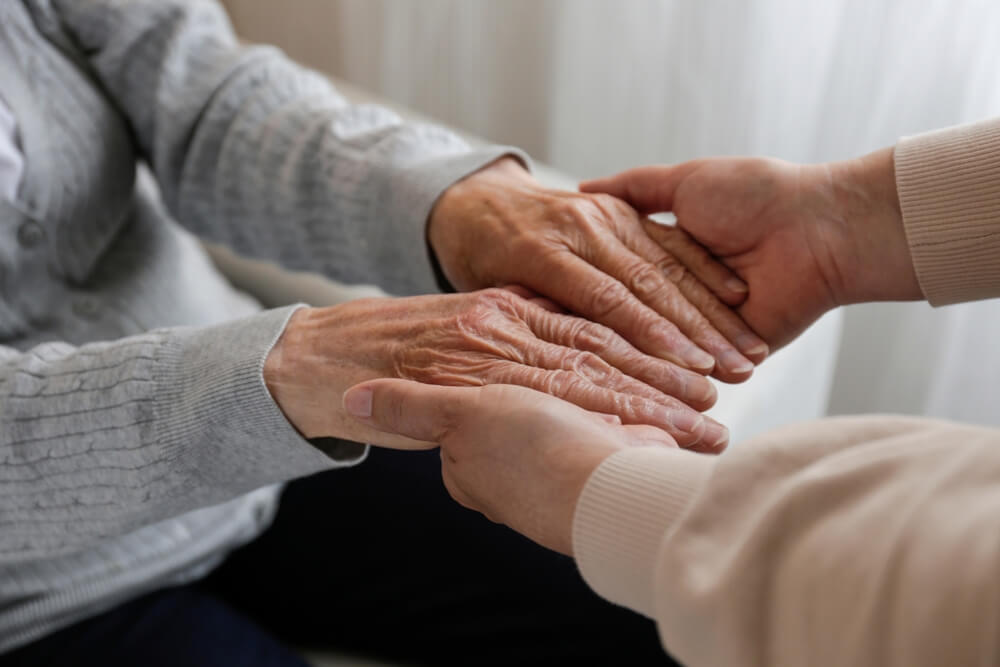Understanding and Navigating Dementia Stages: Empowering Caregivers
- Posted on
- By wpengine

Dementia is a progressive condition that affects cognitive function, memory, behavior, and the ability to perform everyday tasks. While the progression of dementia can vary from person to person, it is often categorized into several dementia stages based on the severity of symptoms. One commonly used framework to describe the stages of dementia is the Global Deterioration Scale (GDS), also known as the Reisberg Scale. We’ll walk through the general stages.
Stages of Dementia
Whether your loved one has received a dementia diagnosis – or a diagnosis of Alzheimer’s Disease (or preclinical Alzheimer’s disease) or Lewy Body Dementia, you may be concerned about what to expect as the disease progresses. Here are dementia symptoms to expect for each stage.
Stage 1: No Impairment (Normal Functioning)
At this stage, individuals are functioning normally and do not show any signs of cognitive decline or dementia. They are able to function independently and perform everyday tasks without difficulty.
Stage 2: Very Mild Cognitive Impairment
In the early stages, individuals may begin to experience minor memory lapses or forgetfulness that are often attributed to normal aging. These lapses may include forgetting names or where they placed objects. These symptoms are typically not severe enough to interfere with daily life or be recognized as dementia.
Stage 3: Mild Cognitive Decline (Early Stage)
At early stage dementia, cognitive decline becomes more noticeable. Individuals may have difficulty remembering recent events, organizing thoughts, or finding the right words during conversations. They may also experience challenges with tasks that require concentration or problem-solving. Despite these difficulties, individuals are often still able to function independently with some support.
Stage 4: Moderate Cognitive Decline (Mild Dementia)
In this stage, cognitive decline becomes more pronounced. Individuals may have difficulty managing finances, remembering significant personal details, or performing complex tasks such as cooking or driving. They may also begin to withdraw from social activities or exhibit changes in mood and behavior.
Stage 5: Moderately Severe Cognitive Decline (Moderate Dementia)
At this stage, individuals require more assistance with daily activities. They may have difficulty dressing, using the restroom, or remembering important personal information such as their address or phone number. Memory loss becomes more significant, and individuals may struggle to recognize familiar faces or places.
Stage 6: Severe Cognitive Decline (Moderately Severe Dementia)
In this stage, individuals experience significant cognitive impairment and require extensive assistance with activities of daily living. They may struggle to speak coherently, recognize family members, or recall recent events. Behavioral and psychological symptoms such as agitation, wandering, or hallucinations may also occur.
Stage 7: Very Severe Cognitive Decline (Severe Dementia)
This final stage (or late-stage dementia) is characterized by a near-total loss of cognitive function and the ability to communicate or interact with the environment. Individuals may lose physical abilities, such as walking, sitting up, or swallowing independently. They require round-the-clock care and supervision for their safety and comfort.
It’s important to note that while the stages provide a general framework for understanding the progression of dementia, not all individuals with Alzheimer disease or other forms of dementia will experience each stage in the same way, and the rate of progression can vary widely. Additionally, other scales and models may be used to describe the stages of dementia, each with its own criteria and terminology.
We know how difficult it is watching dementia progressing. If you are a caregiver, it’s important to remember that help is available. Schedule a consultation with one of our specialists. At Mira Vie, our vision is to provide seniors with a safe, affordable, and reliable place to live while continuing to enhance lifestyle, care, and housing opportunities.
We are ready to help.
Key Takeaways
- Knowing the stages of dementia will help you prepare to care for a loved one.
- By stage three or four, your loved one may require significant care.
- Help is available. Contact a memory facility near you to learn more about respite care or full-time care options.
Related Articles

Mira Vie at Manalapan Earns 2025 AHCA/NCAL Bronze National Quality Award
Manalapan, New Jersey – Mira Vie at Manalapan has been recognized as a 2025 recipient
